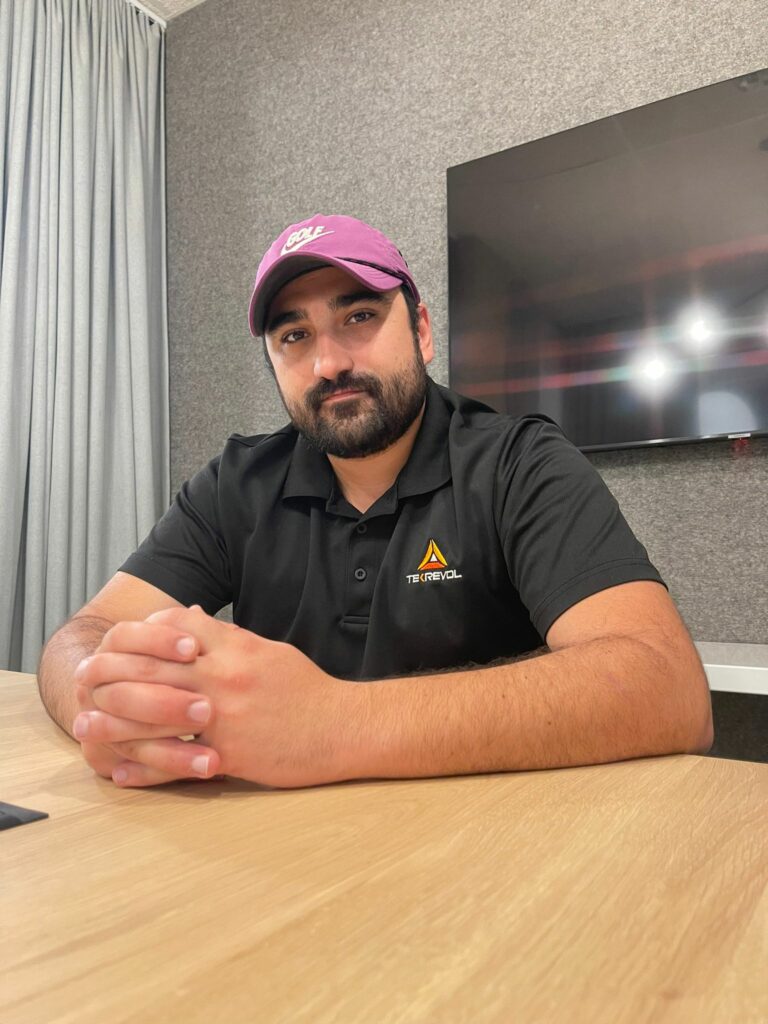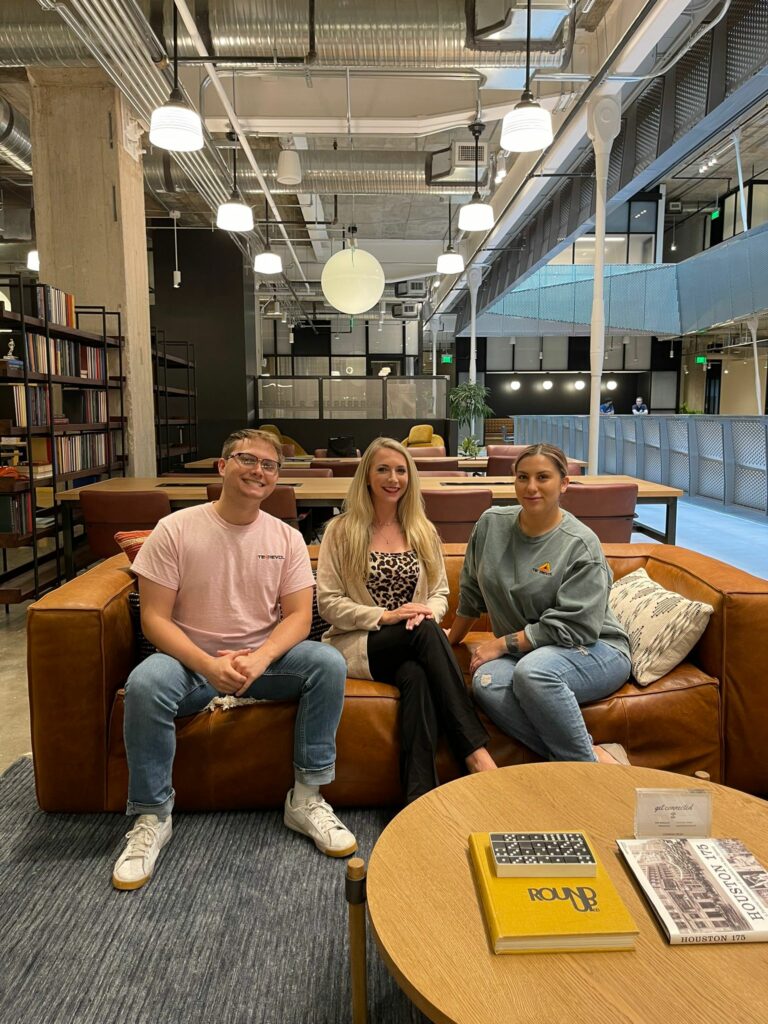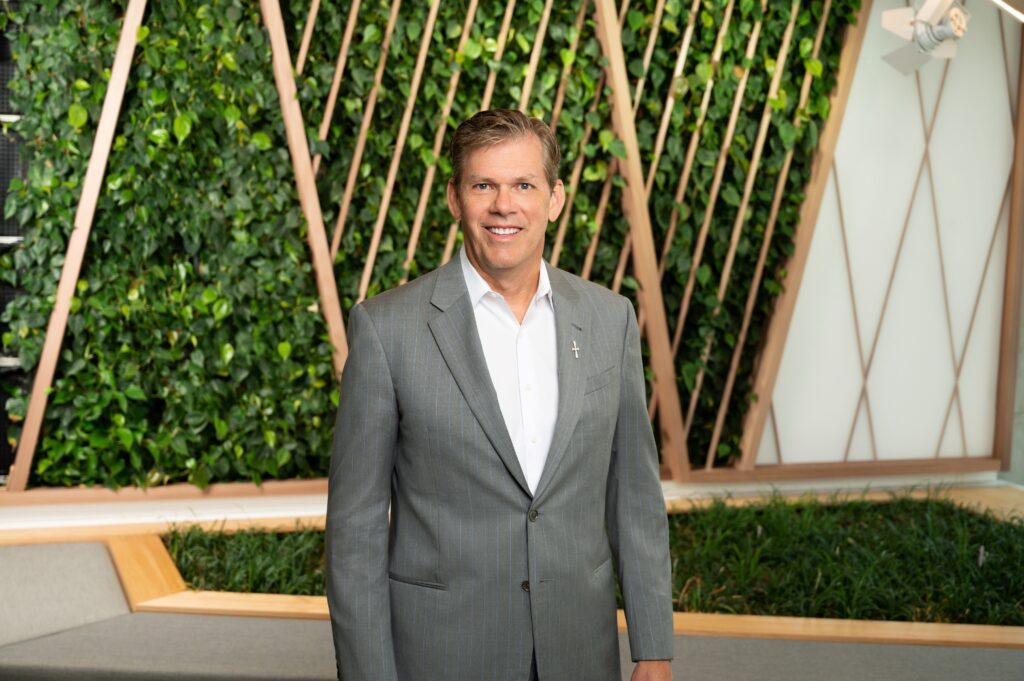The Structured Chaos of Tekrevol

When Tekrevol was founded seven years ago in Silicon Valley, it saw steady success in developing mobile apps for startups and small businesses.
Over the years, it developed a set of standard operating procedures for a transparent, agile app-development process. It also put a heavy focus on culture and on hiring people who shared the founders’ curiosity and willingness to experiment. And above all, it worked hard to make sure the apps it delivered actually did what their clients wanted it to, something that certainly isn’t a given in the industry.
Then, in 2019, two shifts fundamentally altered Tekrevol’s trajectory—and saw the company begin to make real waves.
The first was a headquarters move from Silicon Valley to (you guessed it) Texas. Tekrevol is a global company, and it still maintains presence in California, with additional offices in New York, Dubai, Pakistan, and Ukraine. But from its new home base amid the growing tech scene of Houston, the company has seen accelerating growth even through the COVID era.
Tekrevol’s Evolution: Shifting Towards Enterprise-Level Consulting
The second shift was a pivot toward consulting work within large, enterprise companies. Today, the company still creates apps for startups, but it increasingly focuses on tech-enabled digital transformation within Fortune 1000 companies.
When we spoke with Ryan Shirzadi, partner and cofounder at Tekrevol and an advisor for University of Houston’s C. T. Bauer College of Business, he was enthusiastic about the deep competency his team has built in these enterprise-level consulting projects. The Tekrevol team is currently doing project work much like you would see the Big Four firms doing, but with a lively, digital-first spirit all its own.

As Shirzadi—who cofounded Tekrevol with friends Abeer Raza, CMO, and, Asim Rais Siddiqui, CTO—explains in this interview, the company’s success is rooted in its ideology of “structured chaos.” The phrase describes not only a guiding sensibility of the company’s culture but also the team’s dual devotion to well-defined processes and constant experimentation. Shirzadi also told us about Houston’s growing status as a tech hub and the common mistakes companies make when choosing a development partner.
You went to college in Texas, right?
Right. I went to Texas Tech for undergrad and then got a master’s in accounting and finance at UT’s business school.
What drew you to Houston? Did you consider moving to a big tech hub?
Well, Houston is a tech hub. People talk about California and Austin so much, but Houston has really grown into a place where technology companies can grow and scale. I know a lot of founders here who are making waves globally. In fact, the Austin and California markets are a little saturated at this point, so moving Tekrevol to Houston from California was a strategic decision when we saw the tech ecosystem developing. Entering that ecosystem at the time we did, in 2019, was one of the best decisions we’ve made. Plus, I like being a part of Houston’s growth. I get to meet awesome people all the time who have crazy, awesome ideas.
Can you tell us about Tekrevol’s growth and evolution over the past few years?
It’s been a wild ride finding our little niche. We started in the app development space. Our core competency lay in helping startups and small to medium businesses build apps.
Like most founders, we started Tekrevol because we saw an issue with the way things were being done. At that point, the main issue we were addressing was lack of transparency, communication, and trust in our industry. Imagine going in and saying, “I want an app that does this, this, and this.” Then you wait forever. Six months later, you get a product that’s not at all what you described. That happens a lot.
Our app-development processes are designed to completely avoid that. We follow our standard operating procedures religiously and make sure our clients and ourselves are on the same page throughout the entire process.
As we scaled, especially since 2019, we’ve moved into more consulting projects at the enterprise level, in addition to continuing app development. In that work, we’re looking at the client’s business processes and how we can optimize them in tech-enabled ways.
How does the app development work relate to the consulting work?
There are similarities and differences. On the app development side, clients generally have an idea of what they’re looking for. They come to us with their ideas, sometimes with examples of other apps they like. A lot of times it will be the typical “We want to create an Uber for X”—let’s say, coffee delivered to your door. We then go in and figure out, “All right. How can we do that?” Today, we obviously feel very confident with those types of projects, and it’s something we love to help people with. I love the disruptive, crazy ideas these startups come up with. We helped with one of the first apps that did car delivery. That was unheard of at the time.
With consulting work on the other hand, the enterprise client might not know exactly what they’re looking for. Instead, we go in and learn about their processes, then talk about how that can be transformed with digital solutions—making things way easier, way less expensive, way quicker. The end goal is saving time and money for the client. A lot of times, they might be doing, say, database management on a .NET server or something old-school like that. We can help them create an platform instead where they can view everything in one place.
We also see where things can be automated. I don’t mean automation that will make people lose their jobs per se. It’s more processes that have so many needless redundancies and inefficiencies, like 10 people manually authorizing one transaction. Often companies have these processes in place and no one knows why they’re still doing it that way. In an oil and gas company, they might have vendors sitting around manually monitoring various items when they could instead set thresholds that automatically notify everybody when something needs attention. We can come up with cool solutions to streamline their processes.
What common mistakes do you see CEOs making when they pick tech partners like Tekrevol?
People sometimes look first and foremost at price. That makes sense—they’re concerned with the bottom line. But that can cause them to just go with the cheapest option. A better way to make that decision is to look at long-term value you get out of a solution. Obviously, value should outweigh investment, but choosing the cheapest partner won’t get you the most value in many cases.
Other times, people get caught up in buzzwords like “AI” and want to dive into the deep end without understanding the business problem they’re trying to solve. That leads to implementing some big new tech solution that people just forget about. But you know how technology works—if you sit and wait, it will be outdated in a year.
What makes Tekrevol different from other players in your space?
One thing that makes us really special in this industry is that we’re all in-house employees. We don’t outsource any of our projects. When you hire a firm like ours, you expect them to share your vision and enthusiasm. That doesn’t happen with a lot of companies. A lot of them manage projects with outsourced teams in other countries, and things get lost in translation.
We definitely leverage a global workforce, but all of our employees are full-time. We refer to it as a hybrid solution—we have offshore operations, but not outsourced to other companies. I just set up an office in Ukraine for example, as they have some of the best UI/UX design talent there. Our team over there is incredible.
What is the culture like across Tekrevol? Is it the same in all the different offices in Ukraine, Dubai, California, Texas, or is it different?
I love that you asked this question. We just got nominated for the [Tech in Motion] Timmy Award for best tech culture, up there alongside companies like eBay. We have a very strong and standardized culture. The word standardized sounds boring—I mean more that it’s aligned. The same essential culture flows throughout all our locations, from Texas to Dubai to Pakistan to Ukraine. We focus heavily on that.
Our core values set the tone for the culture: communication, individual collectivism, structured chaos. We really embrace experimentation within the structures we know work. We never want to be afraid to fail, to be a little chaotic. That’s how innovation happens.
When we were building out the company culture out, it was really difficult to define it and keep it consistent. It always comes down to the people, the vibes, the ability to gel with each other. We focused on making sure our workforce was full of people who are willing to learn, willing to fail, willing to try new things.
In recruiting, we rarely say, “We need somebody who’s the best of the best at this technical skill.” Sure—we need highly skilled professionals. In some roles, education and experience play a role as well. But we also look at how they align with the things we value culturally. How will they collaborate with the rest of the team? Will they be willing to learn and try new things? Will they be able to hear what the client is asking for and exceed their expectations?

Do you play a big hand in shaping that culture?
I definitely play a role, being one of the owners, but I can’t say I’m the only one. My partners have played just as much of a role as me. We all want our company culture to be one where people aren’t afraid to come up with awesome ideas, even the out-there ones that could fail.
Are people mostly still remote at Tekrevol?
It always depends on the local government’s recommendations, of course, but we do prefer for everybody to be in the office together. We’ve found that being around each other physically can help with collaboration toward a common goal.
How do you handle communicating across all those different offices, with time zones and cultural differences?
Most of our team is well-traveled, so that helps with cultural understanding and openness. The consistent company culture helps too—everybody knows what we’re about. The whole company, except Texas, runs on Pacific Standard Time. Everybody is up at roughly the same time and asleep at same time.
What’s the vision for Tekrevol in the next few years?
We’d like to continue our pivot toward consulting work. We’ve developed deep expertise in uncovering operational issues, creating solutions, and implementing those throughout the entire ecosystem of the company.
Is there a difference in leadership style between you and your partners? Do you guys play off each other’s strengths?
Absolutely, man. Our partners are so diverse. There’s me over with the crazy ideas, pushing for us to scale something that will separate us from the crowd. Then we have Asim on the polar opposite side, keeping things real, reasoning through each idea. And then there’s Abeer in the middle, keeping us balanced, making sure neither of us is pulling too hard on either side of the rope.
As far as managing employees, we all bring a different flavor to it. It’s incredible how people react differently to our leadership styles. I’m you have just me in the room, it’s going to be a different discussion and set of ideas than if it’s just Abeer in the room. And that will be different from the conversation if it’s me and Asim in the room together.
What’s your best tip for others who might be trying to get a startup off the ground?
Really focus on the foundation of your company. If you get that foundation right, it will be a lot easier to start acquiring clients and generating revenue.
Today, a huge part of that foundation is your online presence. How can you make your online presence more scalable? It might include SEO, app store optimization, digital marketing, videos, social media, and more. All these things require consistency. If you don’t have a foundation and you’re just putting out stuff randomly, you won’t acquire clients.






